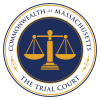- Trial Court Law Libraries

Article 18 (1780)
A frequent recurrence to the fundamental principles of the constitution, and a constant adherence to those of piety, justice, moderation, temperance, industry, and frugality, are absolutely necessary to preserve the advantages of liberty, and to maintain a free government. The people ought, consequently, to have a particular attention to all those principles, in the choice of their officers and representatives: and they have a right to require of their lawgivers and magistrates, an exact and constant observance of them, in the formation and execution of the laws necessary for the good administration of the commonwealth.
Quotations
While the Massachusetts Declaration of Rights works primarily to give shape and definition to the guaranteed rights held by the citizens of the Commonwealth, Article 18 goes in a different direction. It speaks to duties and responsibilities. John Adams says that it is our job to work towards creating good government, and that we should expect and ensure that our representatives in government are the best people. We hear echoes today from those who want to make sure that the best people are serving in government.
In the eighteenth century, when John Adams drafted the 18th Article of the Declaration of Rights, the pool of those he envisioned as “lawmakers and magistrates” was less expansive than one we might expect today.
G. Edward White,”Law and the Founding of the American Republic I”, Law in American History, Volume 1: From Colonial Years Through the Civil War, Oxford University Press, 2012, p. 145:
“Members of the new governments needed to be embodiments of virtue because the temptations of influence, patronage, and corruption were always present among those who held office, and because in a political culture in which the symbol of the king would no longer be present and in which the nobility had never become established, it would be easy for elites exercising political power to use their offices for profit and self-promotion. The remedy was to extend the codes of personal and private honor, so valued by elites of Adam’s generation, into the public arena, so that enlightened, disinterested officeholding became a way of doing credit to one’s name and reputation.”
Abraham Lincoln, “Gettysburg Address”, Gettysburg, Pennsylvania, November 19, 1863 :
“It is for us the living, rather, to be dedicated here to the unfinished work which they who fought here have thus far so nobly advanced. It is rather for us to be here dedicated to the great task remaining before us—that from these honored dead we take increased devotion to that cause for which they here gave the last full measure of devotion—that we here highly resolve that these dead shall not have died in vain—that this nation, under God, shall have a new birth of freedom, and that government of the people, by the people, for the people, shall not perish from the earth.”
John F. Kennedy “Inaugural Address.” Washington, DC., January 20, 1961 :
“Now the trumpet summons us again–not as a call to bear arms, though arms we need–not as a call to battle, though embattled we are–but a call to bear the burden of a long twilight struggle, year in and year out, ‘rejoicing in hope, patient in tribulation’–a struggle against the common enemies of man: tyranny, poverty, disease and war itself. . .
In the long history of the world, only a few generations have been granted the role of defending freedom in its hour of maximum danger. . .
And so, my fellow Americans: ask not what your country can do for you–ask what you can do for your country. My fellow citizens of the world: ask not what America will do for you, but what together we can do for the freedom of man.
Finally, whether you are citizens of America or citizens of the world, ask of us here the same high standards of strength and sacrifice which we ask of you. With a good conscience our only sure reward, with history the final judge of our deeds, let us go forth to lead the land we love, asking His blessing and His help, but knowing that here on earth God’s work must truly be our own.”
